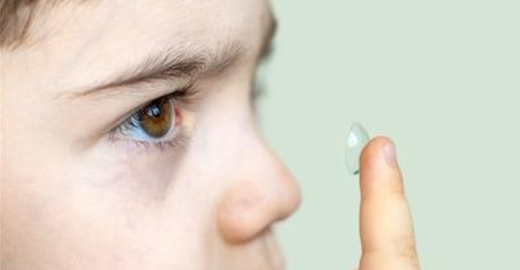Contact Lenses For Kids – Safety Tips
If your child is at an age where they’re looking to switch from glasses to contact lenses, there are some things to consider first.
If your child isn’t ready for the responsibility that comes with contact lenses, they can be dangerous. There’s a lot of upkeep with both glasses and contact lenses, but glasses are easier for kids to deal with. However, at a certain point, they will be ready for contact lenses. Here’s how you can tell.
Is Your Child Ready For Contact Lenses?
As with any new thing your child is trying out, it’s good to monitor them in case they need help or advice. Give them their freedom, but make sure they aren’t going to hurt themselves. Contacts, using them incorrectly can damage the eyes or cause eye infections. Your doctor will likely ask about these things before prescribing, but consider these factors on your own to know if your child is ready for contact lenses:
- Age – While children of almost all ages wear contact lenses, generally before 12 years old they’ll be prescribed one-day disposables while children 12 and older are usually ready for reusable contact lenses.
- Hygiene – If your child is still prone to have dirty fingernails or forgetting to wash their hands, contact lenses are a bad idea. Make sure your child understands the importance of clean hands if they’re going to put in and take out contact lenses.
- Maturity & Responsibility – Unless you’re going to help them take out and put in contact lenses every time, consider if they are responsible enough for the daily routine. The last thing you want is your child forgetting to take out their contacts and sleeping with them regularly.
Child Safety Tips For Contact Lenses
Should you decide your child is ready to start wearing contact lenses, follow these tips to cut down the chance of eye infections. They’re the same tips adults would follow, but especially important to be vigilant of children who may forget.
- Wash hands every time before taking out or putting in contact lenses, making sure to get any dirt out from under the fingernails.
- Keep fingernails short to minimize the chance of staying dirty after hands are washed.
- Clean the contact lenses and case as often as directed.
- Replace contact lenses as often as directed.
- Stay up to date with eye doctor appointments to ensure contact lenses are the correct strength and that they are being used properly.
Fite Eye Center | Contact Lenses For Children And Adults
There are plenty of reasons you may want to use contact lenses instead of glasses. They’re more convenient for active lifestyles, and it could be a matter of style when someone doesn’t want to wear glasses but still needs corrective lenses. Whatever your motivation, the experts at Fite Eye Center can help find the perfect contacts for you. We’ll discuss the different kinds of contact lenses you can wear, as well as figure out what prescription of contact lens strength is going to help your vision.
